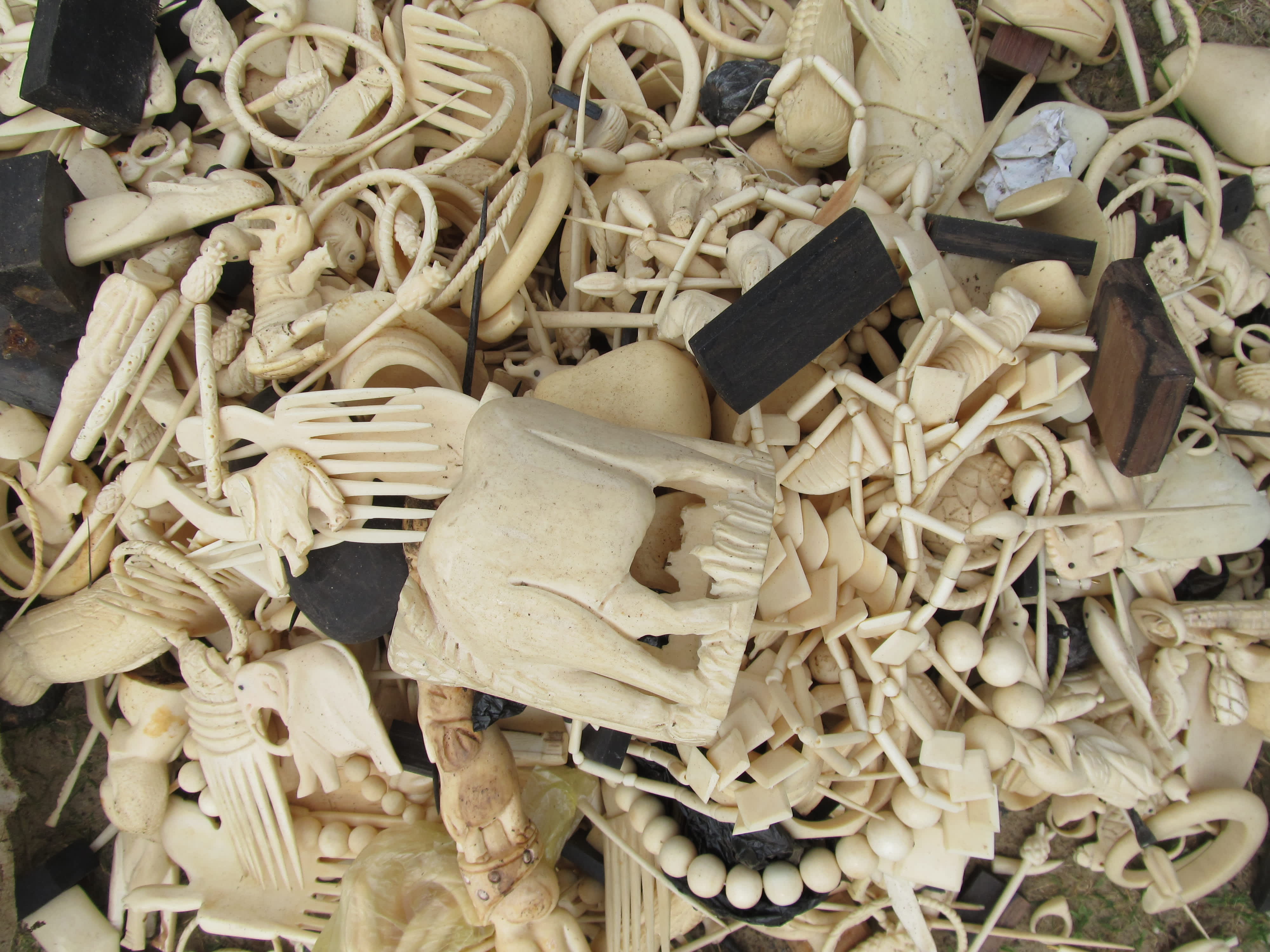Gabon to Burn Entire Ivory Stockpile in Effort to Combat Illegal Wildlife Trafficking
OutdoorHub Reporters 04.05.12

As a symbol of its commitment to tackling illegal wildlife trade, Gabon will burn its entire ivory stockpile in the coming months, at a date to be announced shortly. The move is an acknowledgment by the country that ivory from illegal sources has no recognized commercial value, and could leak onto the black market if not destroyed, said World Wildlife Fund (WWF) and TRAFFIC, which are supporting Gabon’s efforts to tackle illegal wildlife trade.
The news came during a major international meeting in Libreville to address the growing poaching crisis across Central Africa. Thousands of elephants are killed each year for their tusks, which are in demand as carvings and ornaments in Asia. An estimated 5,000 to 12,000 elephants are killed each year for their ivory. Data submitted to CITES, the UN body regulating international wildlife trade, shows that law enforcement is poor or non-existent in many Central and West African countries.
Cameroon, for instance, is still dealing with the massacre of hundreds of elephants in Bouba N’Djida National Park this January. Soldiers responding to the slaughter are also believed to have been killed. Just weeks later, more elephant deaths occurred in Boumba Bek National Park in southeast Cameroon, where 12 suspected poachers were arrested and 14 elephant tusks confiscated.
To address this upsurge in poaching in the region and increase international cooperation, over 150 experts from Central African, US and Asian governments, together with specialized UN agencies and international organizations such as CITES, INTERPOL and the Kenya Wildlife Service, are meeting this week in Gabon.
To verify that all Gabon’s tusks are accounted for before being burned, an independent inventory and audit of the country’s stockpiles is currently taking place by the government, with support from TRAFFIC and WWF experts and other independent observers. The audit will determine the quantity, weight and origin of the existing tusks, and help establish protocols to ensure that any future seized ivory is properly documented and securely managed.
httpv://youtu.be/4BYs_SZcxsI
“Gabon is demonstrating how domestic ivory supplies can be regulated, given the political will to do so,” said Stephane Ringuet, TRAFFIC’s Central African Director who is conducting the audit. “If Gabon’s lead is replicated region-wide, we could see real progress being made in tackling elephant poaching and putting the criminal syndicates behind it out of business.”
Natasha Kofoworola Quist, WWF Central Africa Regional Programme Office Representative, said: “The burning of a country’s entire ivory stockpile will be a historic conservation event in Africa, and a strong deterrent signal for all the actors in the illegal wildlife chain trade. We acknowledge the Gabonese government for taking the lead and the US government for its support in helping to combat illegal ivory trafficking.”

The Central African Sub-regional Wildlife Anti-Trafficking workshop in Libreville, hosted jointly by the Gabonese and Central African Republic governments with support from the US government, comes at a time of intense poaching pressure.
In April 2011, Gabon’s President Ali Bongo announced the creation of an elite military unit whose mission is to secure Gabon’s parks and to protect wildlife, especially against poaching and illegal trade of ivory.
“An inter-agency, regional approach, along with international collaboration is vital to combat poaching in Central Africa and we must act now,” said Suparna Biswas, WWF-Gabon Country Director.
The Libreville meeting is a further step toward the establishment of a regional action plan to tackle poaching and wildlife trafficking, a process earlier started by COMIFAC member states with technical support from TRAFFIC and WWF, and financial support from the US government.
“We urgently need concrete and realistic solutions that can be implemented immediately to halt the carnage. All too often, poaching arrests in the field are not followed up with robust prosecutions and strong sentences, and hence provide no deterrent to wildlife criminals,” Biswas said.

Other root causes of wildlife crime include porous borders, the proliferation of weapons, government corruption, lack of economic development, and rampant consumer demand in Asia. About 90 percent of elephant poachers surveyed by IUCN said they are doing it primarily to sell ivory, and that they are being commissioned mostly by government officials, military officers or businessmen.
Possible solutions include disrupting sophisticated criminal syndicates, investing in sustainable economic opportunities, tackling corruption, and increasing support from the global community.
“WWF looks forward to the adoption and implementation of a regional Central African law enforcement plan and collaboration networks with specialized international agencies as well as consumer countries,” said Bas Huijbregts, WWF Regional Field Programmes Manager. This will increase judiciary transparency, regional, and international collaboration regarding the dismantling of international wildlife trafficking networks, and help provide rangers with the resources and training they need.”

